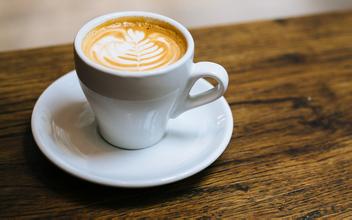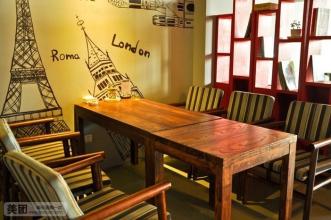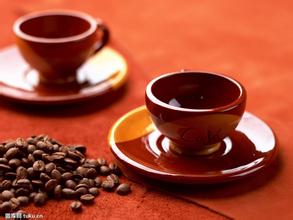El Himalayan Coffee Grind Characteristics Variety Flavor Description Taste Introduction
Formerly known as "San Salvador" and "Bahia". An important natural deep-water port on the Atlantic coast of Brazil, the capital of Bahia state. It is located on the east bank of Todos (Santos) Bay. With a population of 3459377 (as of August 1, 2010), it is the eighth largest city in Brazil. The ancient city, one of the oldest cities in Brazil, was founded in 1549, and the first churches were built by Jesuit priests in 1549. El Salvador was the capital of Brazil until 1763. It is a comprehensive industrial and commercial city. Oil is produced in the nearby Kandyas oil field. Industries include petroleum refining and petrochemistry, automobiles, food, tobacco, textiles, shipbuilding and so on. There are well-developed land and sea transportation and airports on the outskirts of the city. The port is open and deep, can berth ocean-going ships and super oil tankers, and export textiles, tobacco, coffee, oil and so on. The urban area is built on a peninsula extending into the Atlantic Ocean, divided into high and low cities, with lifts and cable cars connected. Multi-colonial buildings and churches, as well as universities and museums. With beautiful seaside scenery, the resort city of El Salvador has a large number of 16th century buildings and religious buildings, many of which are decorated with 17th and 18th century carvings and many stripes made of colored mud. reflects the characteristics of the colonial period. Its overall characteristics are described through a forest of monuments and consistent ideas. All this shows that El Salvador is a famous example of a city that is structurally suitable for colonies.
There are also buildings and dwellings of different styles built in the next two centuries. The city of El Salvador was an important confluence of European, African and North American civilizations from the 16th to 18th centuries, and a model for the successful transplantation of Renaissance urban architecture to colonial cities.
The Republic of El Salvador, located in the north of Central America, is the most populous country in Central America. The country is bordered by Honduras to the north, the Pacific Ocean to the south and Guatemala to the northwest. The national economy is dominated by agriculture, and the main crops are coffee and cotton. El Salvador is also one of the birthplaces of ancient Mayan culture, with not only distant culture, but also beautiful scenery such as volcanoes, plateau lakes and beaches along the Pacific coast.
The topography here is mainly mountainous and plateau, with many volcanoes. Savanna climate. The plain area belongs to the tropical rain forest climate and the mountain area belongs to the subtropical forest climate. The average annual temperature is 25-28 ℃, and the annual precipitation is more than 1800 mm in mountainous areas and about 1000 mm in coastal areas. It is rich in water resources, short and swift rivers and volcanic lakes.
El Salvador's coffee accounts for 40% of the country's exports, and it is usually picked in November, December and January-March of the following year. The export of raw beans lasts almost all year round. Coffee is produced in seven of the country's 14 provinces, with the largest number in the northwestern provinces of chalatenango and santa ana. El Salvador produces 100% Arabica coffee, 68% of which is bourbon, which usually grows at an altitude of 1062 Mel 1972 meters. On the other hand, El Salvador has a unique mountain, river and plateau, which provides a suitable environment for the growth of bourbon coffee. At the same time, El Salvador's suitable temperature, abundant precipitation and fertile soil are also indispensable natural conditions for breeding high-quality coffee beans. Salvadoran coffee, like other typical island beans, is well-balanced, soft and good in texture.
Central American countries generally distinguish quality grades by altitude, such as Costa Rica, Guatemala, Mexico, Honduras and other countries. Similarly, El Salvador is graded by altitude. At high altitudes, due to the cold climate and slow coffee growth, the density of raw beans will be higher, the hardness will be stronger, the unique acidity of Arabica will be better, and of course the better the quality will be. Therefore, the higher the altitude of coffee growth, the better the flavor, on the contrary, the lower the altitude, the higher the temperature, the faster the growth rate, the lower density, the lower hardness and the worse quality of raw beans.

Important Notice :
前街咖啡 FrontStreet Coffee has moved to new addredd:
FrontStreet Coffee Address: 315,Donghua East Road,GuangZhou
Tel:020 38364473
- Prev

Introduction of Panamanian Cupid Coffee Flavor description, Grinding degree and Taste production area
At the beginning of the 16th century, Panama became a Spanish colony, and by 1821, Panama was one of the Spanish colonies in America. In 1821 Panama joined the Greater Columbia Republic established by Simon Bolivar. In 1830, the Union split and Panama became a member of Colombia.
- Next

Lime sour sun Yega Shifeiwaka Coffee Flavor description introduction to the way of grinding and brewing
Although the Ethiopian Yirgacheffe coffee is petite, it is gentle and delicate and sweet. As the hometown of coffee, thousands of years of planting history and processing tradition in Ethiopia have created high-quality washed Arabica beans. Light baked with unique sweet aromas of lemon, flowers and honey, soft acidity and citrus flavors, fresh and bright on the palate.
Related
- Detailed explanation of Jadeite planting Land in Panamanian Jadeite Manor introduction to the grading system of Jadeite competitive bidding, Red bid, Green bid and Rose Summer
- Story of Coffee planting in Brenka region of Costa Rica Stonehenge Manor anaerobic heavy honey treatment of flavor mouth
- What's on the barrel of Blue Mountain Coffee beans?
- Can American coffee also pull flowers? How to use hot American style to pull out a good-looking pattern?
- Can you make a cold extract with coffee beans? What is the right proportion for cold-extracted coffee formula?
- Indonesian PWN Gold Mandrine Coffee Origin Features Flavor How to Chong? Mandolin coffee is American.
- A brief introduction to the flavor characteristics of Brazilian yellow bourbon coffee beans
- What is the effect of different water quality on the flavor of cold-extracted coffee? What kind of water is best for brewing coffee?
- Why do you think of Rose Summer whenever you mention Panamanian coffee?
- Introduction to the characteristics of authentic blue mountain coffee bean producing areas? What is the CIB Coffee Authority in Jamaica?

